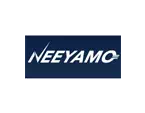MBA Operations and Supply Chain Management
Programme Overview
To ensure the smooth functioning of any organisation, its operation and supply chain management system should be planned and coordinated carefully. It covers everything along the path, goods travel from suppliers to eventual consumers.
The MBA in Operations and Supply Chain Management programme at MIT-WPU is designed especially for professionals interested in the field of manufacturing, services , logistics and supply chain sector.
This meticulously designed programme offers an in-depth knowledge about operational dynamics and a comprehensive understanding of supply chain management principles.The curriculum is a combination of rigorous academic training along with practical industry insights, preparing students to navigate complex challenges in operations management effectively.
Students gain valuable insights about different departments that influence operational processes. They learn to identify critical areas for implementation, integrate relevant technologies and develop strong management skills.
This holistic approach prepares graduates to become adept problem solvers who can seamlessly adopt innovative technologies while enhancing their managerial capabilities.
Graduates emerge ready to manage time efficiently, optimise costs, and mitigate risks, which allows them to create sustainable management practices across various organisational roles. This programme not only prepares them for immediate career opportunities but also lays a solid foundation for long-term professional advancement in a rapidly evolving environment.
Duration & Fees
Duration
2 Years
Applications Open for 2026
Fee Per Year
₹ 5,00,000
Scholarship
| Scholarship for AY 2026-27 | MHT-CET 26 / CAT 25/ MAT - Sept 2025 to June 2026 / XAT 26 | NMAT / GMAT |
|---|---|---|
|
Dr. Vishwanath Karad Scholarship |
MHTCET - 26 / CAT - 25/ XAT - 26 90 & above MAT - Sept 2025 to June 2026 95 & above |
NMAT - 280 & above, GMAT - 650 & above |
|
MIT-WPU Scholarship I |
MATCET - 26 / CAT - 25/ XAT - 26 85 & above MAT - Sept 2025 to June 2026 92 & above |
NMAT - 250 & above, GMAT - 550 & above |
|
MIT-WPU Scholarship II |
MATCET - 26 / CAT - 25/ XAT - 26 80 & above MAT - Sept 2025 to June 2026 90 & above |
NMAT - 230 & above, GMAT - 500 & above |
Note: Scholarships will be awarded based on the MHT-CET 26/ CAT 25/ MAT - Sept 2025 to June 2026/XAT 26 /NMAT/GMAT Score/ Percentile.
Terms & Conditions Apply:
- All Scholarships are awarded on a First Come First Serve basis. All Scholarships are awarded as fee adjustments.
- To continue the scholarship for the entire duration of the programme, a minimum level of the academic score has to be maintained at an 8 CGPA across all semesters, attendance is to be maintained at a minimum of 80 percent, with no live backlogs in any subject/programme and no semester break, and there should be no disciplinary action against the student.
For more detailed information visit our website: https://mitwpu.edu.in/scholarships
Eligibility
Minimum 60% aggregate marks in 3/4-year graduation degree in any stream from a UGC-approved institution/university or its equivalent (Minimum 55% aggregate marks for candidates belonging to the Reserved Category from Maharashtra State).
AND
A minimum of 60% aggregate marks in Class 10 (SSC) and Class 12 (HSC) examinations, with English as a compulsory subject.
AND
A valid non-zero score in the relevant entrance examination conducted by the competent authority.
Selection Process
Admission will be based on the merit of a valid score in CAT 2025, XAT 2026, NMAT 2025, GMAT, CMAT 2026, MAH-CET 2026, PERA 2026 or MAT (September 2025).
AND
Candidates will also be evaluated through Group Discussion (GD)/Extempore, Personal Interaction (PI) conducted by MIT-WPU, along with consideration of their Past Academic Record and Work Experience.
AND
The valid (non-zero) national level entrance score is mandatory for confirmation of admission.
Programme Highlights
- Enhance Internal Competence for Outer Demand (ICODs)
- Cultivate entrepreneurial intelligence and benefit from Start-Up Mentoring
- Exposure to the corporate world through industry visits, summer internships, and live projects
- Dedicated Centre for Industry-Academia Partnerships to support students through structured assessments, training, and grooming activities for internships and job placements
- MIT-WPU Technology Business Incubator (TBI) to support early-stage entrepreneurs, and students through funding, mentoring, and network connection
- Embedded ability enhancement courses in the curriculum to train students for the professional corporate world
- Our curriculum is aligned with the world renowned Bloom’s Taxonomy and LOCF Model
- Rural, National and International immersion programmes
- Competency mapping for enhanced career support and progression
- A well-recognized Advisory Board of highly eminent national and international experts
- Learn from guest lecturers, management experts, and international faculty
- We offer a dynamic case-based learning approach, guaranteeing that our students are proficient in both theoretical knowledge as well as its practical implications.
- The ICODs sole initiative is to enhance core capabilities, equipping students to navigate real-world challenges with confidence.
- Get real-world exposure with regular industry visits, live projects and internships.
- Our CIAP team is dedicatedly working to provide structured support for internships and job placements.
- Our Technology Business Incubator offers mentorship, funding and networking opportunities to support budding entrepreneurs
- Our curriculum is inspired from Bloom's Taxonomy and the LOCF Model, ensuring a comprehensive and structured learning experience
- MIT-WPU hosts guest lectures from industry professionals, and international faculty who bring real-world experience into the classroom.
Programme Structure
| Semester | Course Type | Course Name/Course Title | Credits |
|---|---|---|---|
| I | Programme Foundation | Accounting for Business Decision Making | 3 |
| I | Programme Foundation | Managerial Communication | 2 |
| I | Programme Foundation | Managerial Economics | 3 |
| I | Programme Foundation | Organization Structure, System & Processes | 2 |
| I | Programme Foundation | Organisational Behavior | 3 |
| I | Programme Foundation | Quantitative Techniques for Business Decision-Making | 3 |
| I | Programme Foundation | Understanding the Metaverse | 2 |
| I | University Core | Scientific Studies of Mind, Matter, Spirit, Consciousness | 2 |
| I | University Core | Yoga | 1 |
| Total | 21 | ||
| Semester | Course Type | Course Name/Course Title | Credits |
|---|---|---|---|
| II | Programme Foundation | Entrepreneurship and New Venture Planning | 2 |
| II | Programme Foundation | Financial Management | 3 |
| II | Programme Foundation | Human Resource Management | 3 |
| II | Programme Foundation | Legal Aspects of Business | 3 |
| II | Programme Foundation | Marketing Management | 3 |
| II | Programme Foundation | Operations and Supply Chain Management | 3 |
| II | Programme Foundation | Research Methodology | 4 |
| II | University Core | Peace Building: Global Initiative | 2 |
| Total | 23 | ||
| Semester | Course Type | Course Name/Course Title | Credits |
|---|---|---|---|
| III | Programme Foundation | Business Analytics & Data Visualization | 2 |
| III | Programme Foundation | Environment Sustainability and Governance | 2 |
| III | Programme Foundation | Strategic Management | 3 |
| III | Programme Major | Operations Planning & Control | 3 |
| III | Programme Major | Supply Chain Management | 3 |
| III | Programme Electives | Programme Elective - I | 3 |
| III | Programme Electives | Programme Elective - II | 3 |
| III | Programme Electives | Programme Elective - III | 3 |
| III | Programme Capstone | Summer Internship Programme | 4 |
| Total | 26 | ||
| Semester | Course Type | Course Name/Course Title | Credits |
|---|---|---|---|
| IV | Programme Major | Global Supply Chain & Logistics Management | 3 |
| IV | Programme Major | Business Process Reengineering | 3 |
| IV | Programme Electives | Programme Elective - IV | 3 |
| IV | Programme Electives | Programme Elective - V | 3 |
| IV | Programme Electives | Programme Elective - VI | 3 |
| IV | Programme Capstone | Capstone (Research Project) | 3 |
| Total | 18 | ||
| Semester | Course Name/Course Title | Course Type |
|---|---|---|
| III | Operations and Supply Chain Analytics | Programme Elective |
| III | Project Management | Programme Elective |
| III | Service Operations Management | Programme Elective |
| III | Technology and Operations Strategy | Programme Elective |
| III | TQM and Business Excellence | Programme Elective |
| IV | Emerging Issues in Digital Operations Management | Programme Elective |
| IV | Facilities Planning and Maintenance Management | Programme Elective |
| IV | Sales and Operations Planning | Programme Elective |
| IV | Strategic Management of Services | Programme Elective |
| IV | Supply Chain Analytics | Programme Elective |
Career Prospects
Operations Manager
Supply Chain Analyst
Transport Officer
Supply Chain Manager
Supply Chain Planner
Logistics Coordinator
Procurement Manager
Quality Assurance Manager
Inventory Control Specialist
Purchasing Manager
Commercial Manager
Supply chain planner
Commercial Manager
Business Manager
Programme Outcomes
- Advanced Application of Knowledge : Leverage advanced knowledge in operations and supply chain management to tackle complex operational and logistics challenges effectively.
- Critical Evaluation and Analysis : Assess, review, and analyse intricate operational issues, developing solutions grounded in fundamental principles.
- Solution Design and Implementation : Generating solutions and system components that fulfil specified industrial requirements
- Technique Selection and Application : Identify and employ suitable techniques and contemporary tools for operational tasks, showcasing a thorough understanding of their limitations.
- Societal Impact Assessment : Evaluating operational and supply chain practices affecting society, health, safety, the law, and culture.
- Ethical Standards : Adhere to professional obligations and ethical standards in the operations and supply chain management domains.
- Effective Collaboration : Develop the culture of cooperation & innovation through group projects and interdisciplinary settings
- Integration with Project Management : To guarantee effective resource allocation and good project outcomes, use supply chain and operations management concepts to project management and finance.
Placements & Recruiters
100% Placement Assistance
Top Recruiters
FAQs
MBA in Operations and Supply Chain Management is the two year degree postgraduate programme that focuses on developing advanced skills based on supply chain management and optimising operations.
An MBA in Operations and Supply Chain Management can lead to a wide range of career opportunities in various industries, including manufacturing, transportation, logistics, and retail.
Core subjects included in the programme:
- Principles of Operations Management
- Supply Chain Strategy
- Logistics Management
- Organisation Structure, System & Processes
- Research Methodology, and more
Graduates can find employment in
- Manufacturing companies
- Retail organisations
- Consulting firms
- Logistics companies
- E-commerce platforms
- Supply chain management firms.
Top recruiters in this field include companies
- Amazon
- Flipkart
- Deloitte
- Accenture
- DHL
- Infosys
- Tata Consultancy Services (TCS).















 admissions@mitwpu.edu.in
admissions@mitwpu.edu.in
